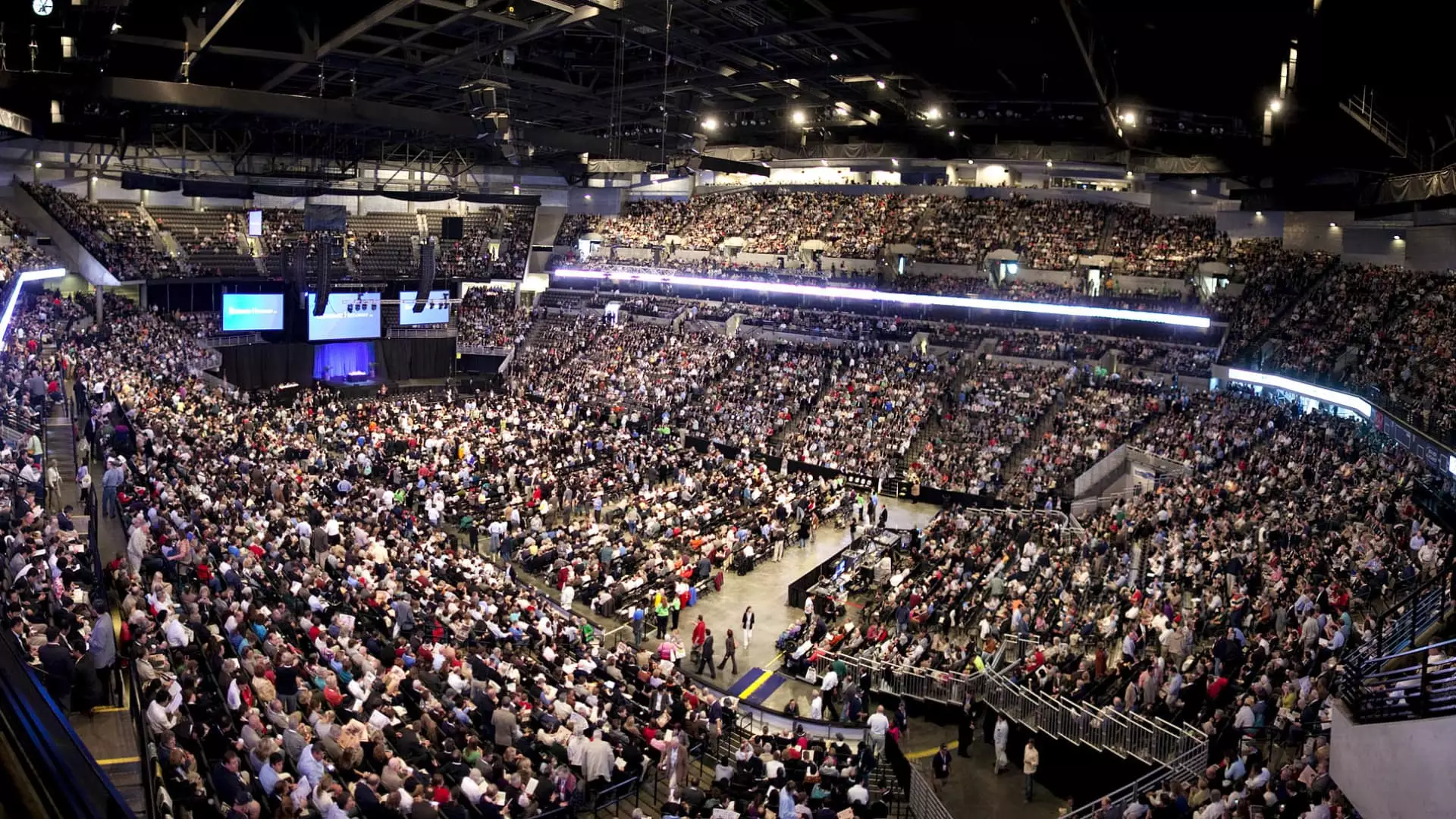The evolution of Berkshire Hathaway’s annual meeting from a modest gathering in 1965 to a colossal event drawing over 40,000 participants serves as a reflection of both Warren Buffett’s visionary leadership and the relentless appetite for investment wisdom that permeates our society. Today, this annual event in Omaha, Nebraska, is a cult phenomenon akin to a religious pilgrimage for investors. The adoration for Warren Buffett, affectionately dubbed the Oracle of Omaha, is palpable, and the event, often referred to as the “Woodstock for Capitalists,” has become a cultural landmark in the world of finance. However, it also raises substantive questions about the commercialization of financial knowledge and the role of personality in the investment climate.
Buffett’s Influence: A Double-Edged Sword
In an era wherein many financial influencers rely heavily on superficial glitz to attract followers, Buffett’s substance stands out. His insights, seasoned by years of experience and a profound understanding of human psychology, have made him an emblem of financial acumen. Despite this, there’s a troubling aspect to this near-reverent worship of a singular figure. It can stifle alternative viewpoints and breed a kind of intellectual complacency among the investing public. Are we as investors merely echoing Buffet’s principles without critically assessing them? While he is undeniably proficient, relying solely on his guidance fosters a mentality akin to blind faith, dangerously relegating independent critical thought.
An Experience Beyond the Numbers
Attendees flood the CHI Health Center not just for stock tips, but for an experiential undertaking that encompasses a myriad of activities, from a 5-kilometer run to the “Berkshire Bazaar of Bargains”. This multifaceted approach to the meeting represents a shift in focus. The message appears to be that investing is not solely about numbers on a ledger, but also about community and experience. However, the cacophony of events raises concerns about the dilution of the core purpose of this gathering. In emphasizing a festival-like atmosphere, are we losing the serious nature of investing itself? An investor’s journey should be underpinned by rigorous scrutiny and analysis, not overshadowed by a carnival of distractions.
Legacy and Change: The Unsung Challenges
The passing of Buffett’s longtime partner, Charlie Munger, marks a profound transition not just for the company but for the entire investment community. Munger was known for his sharp intellect and contrarian viewpoints that often complemented Buffett’s style nicely. His absence raises questions about the future leadership of Berkshire Hathaway and whether it can maintain its distinctive philosophy without the vital energy brought by Munger. As Greg Abel prepares to step into the limelight, many are skeptical about whether he can carry forward the legacy of an ensemble that thrived on both cooperative care and critical debate.
Modern Participation: Streamlined Yet Intimate
As Berkshire Hathaway endeavors to modernize its meeting structure—eliminating features such as a movie introduction and condensing the Q&A segment—one can’t help but mourn the gradual loss of that intimate, personal connection attendees once shared. While the live broadcast presents an avenue for broader participation, it also risks commodifying an experience that thrives on engagement. The sense of community mentioned by industry participants may be at odds with the virtual accessibility that modern technology affords. Does streaming the event inherently strip away its “magic”?
Social Contributions and Capitalistic Responsibility
Berkshire Hathaway’s commitment to social causes, including its recent auction for the Stephen Center, underscores a growing alignment between capitalism and responsibility. Here lies an important liberal perspective: can the powerful elite use their resources not just for profit, but as agents of positive change? It’s a commendable move, yet we must scrutinize the authenticity of these charitable gestures. Is it genuine altruism or does it serve as a façade that corporations hide behind to distract from the often-exploitative nature of capitalism? Solutions to complex societal issues cannot merely be band-aids; they require systemic change.
In the tapestry of investment culture, Berkshire Hathaway’s annual meeting stands out not just as a financial event but as a lightning rod for emotional investment, intellectual debate, and moral inquiry. It is a manifestation of both triumph and challenge, of legacy and transformation, with the promise of what lies ahead and the lessons of the past echoing boldly.

